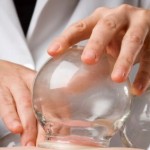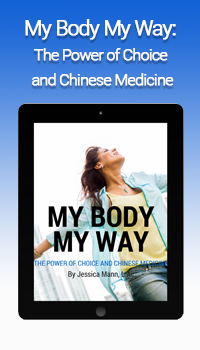FAQ
1. What is acupuncture?
It’s a traditional method of healing that originated in Asia, but has been used worldwide for much longer than what we call “medicine.” Those ancient healers were pretty incredible, forming theories and protocols 5,000 years ago that line up with our “Western” understanding of the body today – without the benefit of all our modern tech. (Did you know MRI’s today can actually prove a lot of this stuff?) Anyway, these classical doctors realized that our bodies and everything going on inside them were based on energy. By harnessing the power of energy (read: nervous system), they could trigger the body to use its own healing mechanisms. They activated points using bamboo & stone…but I’m pretty sure it wasn’t as pain-free as today’s methods.
2. What is Chinese herbal medicine?
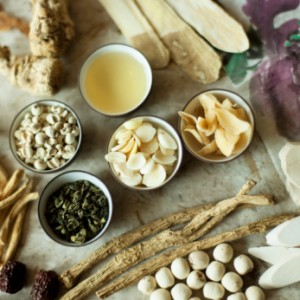 Beautiful. It’s a very unique approach selecting from a massive pharmacopoeia of naturally occurring plant, animal, and mineral substances. Instead of using single herbs to address single symptoms (read: you’re taking the stuff forever), we seek to correct the underlying patterns by using blends of several whole plants. This often means long-term resolution of a whole set of symptoms that may not even seem related by “Western” medical terms. Also, by using the whole plants and blending them together, we retain not only the main function of the herbs, but also the important compounds that moderate any negative properties or side effects. This makes them far less likely to produce any unwanted symptoms. While you do have to be very careful with the quality of herbs you select in this world, I guarantee that I use only pharmaceutical grade herbs that are certified for purity at all stages of the process, and utilize organic and plant-based compounds whenever possible.
Beautiful. It’s a very unique approach selecting from a massive pharmacopoeia of naturally occurring plant, animal, and mineral substances. Instead of using single herbs to address single symptoms (read: you’re taking the stuff forever), we seek to correct the underlying patterns by using blends of several whole plants. This often means long-term resolution of a whole set of symptoms that may not even seem related by “Western” medical terms. Also, by using the whole plants and blending them together, we retain not only the main function of the herbs, but also the important compounds that moderate any negative properties or side effects. This makes them far less likely to produce any unwanted symptoms. While you do have to be very careful with the quality of herbs you select in this world, I guarantee that I use only pharmaceutical grade herbs that are certified for purity at all stages of the process, and utilize organic and plant-based compounds whenever possible.
3. Who uses this medicine?
Grandmas, babies, moms-to-be, doctors, and even those nervous ex-football player tattooed Marines – all over the world. For some reason, we were a little slow to catch on to this magical stuff, but word is spreading like fire. In short, it can benefit everyone and is safe for nearly anyone. With the wide array of things it treats, you’ll likely find six or seven things you want to work on (today, please).
4. What’s it good for?
Everything. Well, just about. Most people come for pain (back, hip, knee, shoulder, little toe and everything in between). When that’s gone, they want to work on weight loss (yes, it does that too), only to find out their insomnia, constipation, and bad wrist have also cleared up. Their co-worker starts coming for stress relief, conquers a flu bug, and goes from dreary to dazzling…you get the idea. We might even become your primary care. For a longer list, look to the right side margin.
5. Tell me about those needles again?
We need another word. They’re not needles in any sense that’s familiar to you. We’re not injecting anything, so they’re tiny & solid. Think hair-fine and pain-LESS – less than a bee sting, less than a flea bite, less than everything you know to compare it to. If you’re one of those people that fainted when you saw the word, take heart. You’re always my best patients. If you need convincing, I’ll give you a sample before you ever start. No one has ever run screaming from my office. Oh, and the needles are sterile and used only once, of course.
6. What’s on the needles?
I really understand this question, but the answer is nothing. Once you feel the deliciously lucid state you’ll be in, it’s hard to believe I’m telling the truth about this. For more on why, read on.
7. How can this possibly work?
So 3,000 years and millions of patients tell a pretty convincing story. Chances are you know someone who swears by it too. This stuff actually works. But, if your brain needs hardcore science to bend itself around, this is what they figure, based on before & after acupuncture blood chemistry studies. Acupuncture stimulates the central nervous system, which releases chemicals to the spinal cord, brain, and muscles:
- Acupuncture increases white blood cell counts. Those are the guys responsible for tackling inflammation in our bodies. Anything with “itis” on the end tells us there’s inflammation: tendinitis, sinusitis, plantar fasciitis, bursitis, etc. Naturally, acupuncture handles all those “itises.” Those WBC’s also help keep us from getting sick, so that means fewer colds & flu’s (hooray!) What if your immune system’s a bit haywire and you’ve got an autoimmune condition like rheumatoid arthritis or fibromyalgia? No problem – the body is self-regulating with a little help.
- Acupuncture stimulates endorphin release. Remember what it felt like when you laughed so hard you cried, devoured those Szechuan noodles, or finished that brisk morning run? Endorphins are the body’s “feel-good” chemicals (and who couldn’t use more of that?) They boost our mood, combat pain, and make us feel on top of the world.
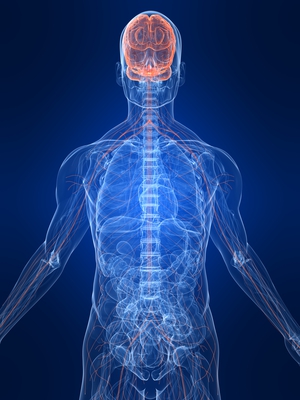 Acupuncture releases neurotransmitters like serotonin and neurohormones. This positively affects brain chemistry to help you sleep better, feel happier, and even improves organ function.
Acupuncture releases neurotransmitters like serotonin and neurohormones. This positively affects brain chemistry to help you sleep better, feel happier, and even improves organ function.- Acupuncture stimulates the hypothalamus and pituitary glands. These important glands activate parts of the nervous system, endocrine system, and other bodily functions that affect temperature, appetite, sleep & hormones.
- Acupuncture interrupts pain signals and releases natural opioids. Like a police car speeding down the freeway, those signals from the needles head off pain before it reaches the brain. They cause the brain to release chemicals to reduce pain and even lull you to restful sleep. With that impressive list of credentials, it’s easy to see why acupuncture not only addresses symptoms, but gets to the bottom of our issues. Every day I get to hear patients rave about improvements in their energy levels, concentration, confidence, appetite, mood, outlook, and sleep. How cool is my job?
8. How many treatments do I need?
As you might guess, it’s different for Grandma than for your 6-year-old son. So, the answer is, “it depends.” How well you take care of yourself before and after your treatments plays a role, as does the number and complexity of the conditions you’d like to address. Your treatment plan is always a partnership between you & me (so ultimately you make that decision), but my goal is not just to alleviate the symptoms temporarily, but to make sure the whole pattern is gone and doesn’t come back. While you might start feeling results right away, I usually recommend a series of treatments with decreasing frequency to put those pesky things to rest.
Acupuncture is just part of a comprehensive medical system. I am licensed to prescribe Chinese herbal medicine, tui na massage, cupping, nutrition, tai qi and medical qi gong to give you the most efficient path to your best results.
10. What’s the downside?
That’s easy. There really isn’t one. Because acupuncture has been tested and refined over thousands of years and uses our body’s own genius to heal itself, there is really no risk. Of course, eight years of super-intense, mind-boggling studies are important, and there are plenty of board licenses and qualifications to back it up. You wouldn’t trust just anyone to do this, right?
11. What’s the difference between a “Medically Certified Acupuncturist” and a “Licensed Acupuncturist?”
Great question, and it’s confusing stuff. A “Medically Certified” or “Certified” Acupuncturist is a medical doctor, chiropractor, or even dentist who studies a super-mini course of acupuncture, often as little as a 4-day seminar at a non-accredited acupuncture program. They are taught how to insert needles, but never learn the foundation of the medicine, which distinguishes “acupuncture” from sticking needles into muscles. As such, they are certified to treat only pain conditions as an adjunct to their primary mode of care. With this small amount of training, as you might expect, the safety and efficacy of acupuncture plummets. If you haven’t already, be sure to click on the link above for more scary stats on that.
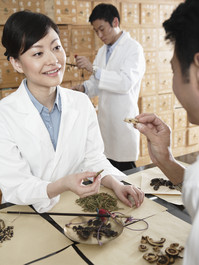 A “Licensed Acupuncturist” is a practitioner whose sole focus is on Chinese medicine, and who completes (in my case) a 4-year Masters program and clinical intern/externships of more than 35oo accredited hours. Our focus is on understanding the diagnosis and deeper imbalances in the body (that is the beauty of Chinese medicine), which allows us to effectively treat a huge multitude of conditions with acupuncture, herbs and nutrition. Oh, and there are State/National Board exams to attain licensure, but not for certification.
A “Licensed Acupuncturist” is a practitioner whose sole focus is on Chinese medicine, and who completes (in my case) a 4-year Masters program and clinical intern/externships of more than 35oo accredited hours. Our focus is on understanding the diagnosis and deeper imbalances in the body (that is the beauty of Chinese medicine), which allows us to effectively treat a huge multitude of conditions with acupuncture, herbs and nutrition. Oh, and there are State/National Board exams to attain licensure, but not for certification.
12. What do all those letters mean after your name?
Find out more about my background here.
13. Do doctors recommend it? What about insurance?
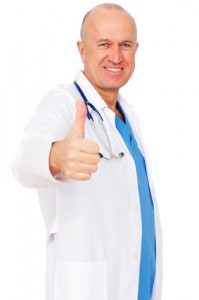 Hmmm. That depends on your doctor. If you have the fabulous kind of doctor who will stop at nothing to help you feel better and is always learning, the answer is most likely, “yes.” I’ve treated lots of doctors, nurses, anesthesiologists, surgeons & more who swear by it. No one medicine conquers all, and the sooner we accept that, the more we can benefit from one another. If your doctor is more “traditional-minded,” they might not know too much yet about alternatives. “Regular” medical school didn’t talk about this stuff ten years ago (hooray for progress!) May you be the first to open their eyes.
Hmmm. That depends on your doctor. If you have the fabulous kind of doctor who will stop at nothing to help you feel better and is always learning, the answer is most likely, “yes.” I’ve treated lots of doctors, nurses, anesthesiologists, surgeons & more who swear by it. No one medicine conquers all, and the sooner we accept that, the more we can benefit from one another. If your doctor is more “traditional-minded,” they might not know too much yet about alternatives. “Regular” medical school didn’t talk about this stuff ten years ago (hooray for progress!) May you be the first to open their eyes.
Insurance is a tough call. More companies are realizing the cost and health benefits to both themselves and you and are providing this as part of your benefits. In this case, I am happy to bill for you to the extent that your services are covered. Unfortunately, there are many who would rather send you off for surgery or keep you on meds for the rest of your life. When you do the math, I’m sure you’ll find the long-term cost to be much less for you, whether you have insurance or not.
14. Still not sure?
Truth is, I can talk until I’m blue in the face about acupuncture (and often do) but there’s no better evidence than witnessing it for yourself. There’s nothing to lose, it can’t make you worse, and you might just accidentally get better…better than you’ve felt in years. If you’d like to talk about it more, I’d love to meet you.

